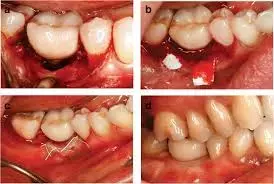- Home
- Medical news & Guidelines
- Anesthesiology
- Cardiology and CTVS
- Critical Care
- Dentistry
- Dermatology
- Diabetes and Endocrinology
- ENT
- Gastroenterology
- Medicine
- Nephrology
- Neurology
- Obstretics-Gynaecology
- Oncology
- Ophthalmology
- Orthopaedics
- Pediatrics-Neonatology
- Psychiatry
- Pulmonology
- Radiology
- Surgery
- Urology
- Laboratory Medicine
- Diet
- Nursing
- Paramedical
- Physiotherapy
- Health news
- Fact Check
- Bone Health Fact Check
- Brain Health Fact Check
- Cancer Related Fact Check
- Child Care Fact Check
- Dental and oral health fact check
- Diabetes and metabolic health fact check
- Diet and Nutrition Fact Check
- Eye and ENT Care Fact Check
- Fitness fact check
- Gut health fact check
- Heart health fact check
- Kidney health fact check
- Medical education fact check
- Men's health fact check
- Respiratory fact check
- Skin and hair care fact check
- Vaccine and Immunization fact check
- Women's health fact check
- AYUSH
- State News
- Andaman and Nicobar Islands
- Andhra Pradesh
- Arunachal Pradesh
- Assam
- Bihar
- Chandigarh
- Chattisgarh
- Dadra and Nagar Haveli
- Daman and Diu
- Delhi
- Goa
- Gujarat
- Haryana
- Himachal Pradesh
- Jammu & Kashmir
- Jharkhand
- Karnataka
- Kerala
- Ladakh
- Lakshadweep
- Madhya Pradesh
- Maharashtra
- Manipur
- Meghalaya
- Mizoram
- Nagaland
- Odisha
- Puducherry
- Punjab
- Rajasthan
- Sikkim
- Tamil Nadu
- Telangana
- Tripura
- Uttar Pradesh
- Uttrakhand
- West Bengal
- Medical Education
- Industry
Adjunctive systemic antibiotics fail to prevent additional surgical intervention after non-surgical peri-implantitis treatment: Study

Adjunctive systemic antibiotics fail to prevent additional surgical intervention after non-surgical peri-implantitis treatment suggests a study published in the Journal of Clinical Periodontology.
The aim of this retrospective long-term follow-up of a 3-month RCT was to assess whether non-surgical peri-implantitis treatment with adjunctive systemic antibiotics influenced the need for additional surgical treatment. Patients enrolled in an aftercare programme following non-surgical peri-implantitis treatment with or without systemic amoxicillin and metronidazole, were analysed. Data had previously been collected pre-treatment (T0) and 3 months after treatment (T1) and were additionally collected during subsequent aftercare visits, until the final assessment (T2). Primary outcome was the need for additional surgical peri-implantitis therapy during the aftercare programme, analysed via Kaplan–Meier analysis and Cox regression.
Secondary outcomes involved clinical parameters, assessed using parametric and non-parametric tests. Results: Forty-five patients (22 AB− group, 23 AB+ group) were included. The mean follow-up time between T1 and T2 was 35.9 months (SD = 21.0). 73.9% of the AB+ group and 50.0% of the AB− group did not receive additional surgical therapy (log-rank test, p = .110). The adjusted Cox regression model did not provide a significant result for antibiotics (β = .441, 95% CI = 0.159–1.220, p = .115). Univariable regression analysis highlighted the influence of baseline peri-implant pocket depth on the need for surgical treatment (β = 1.446, 95% CI = 1.035–2.020, p = .031). Systemic amoxicillin and metronidazole administered during non-surgical peri-implantitis treatment do not seem to prevent the need for additional surgical therapy in the long term, during a structured aftercare programme.
Reference:
Hakkers, J., Vangsted, T. E., van Winkelhoff, A. J., & de Waal, Y. C. M. (2024). Do systemic amoxicillin and metronidazole during the non-surgical peri-implantitis treatment phase prevent the need for future surgical treatment? A retrospective long-term cohort study. Journal of Clinical Periodontology, 1–8. https://doi.org/10.1111/jcpe.14024
Dr. Shravani Dali has completed her BDS from Pravara institute of medical sciences, loni. Following which she extensively worked in the healthcare sector for 2+ years. She has been actively involved in writing blogs in field of health and wellness. Currently she is pursuing her Masters of public health-health administration from Tata institute of social sciences. She can be contacted at editorial@medicaldialogues.in.
Dr Kamal Kant Kohli-MBBS, DTCD- a chest specialist with more than 30 years of practice and a flair for writing clinical articles, Dr Kamal Kant Kohli joined Medical Dialogues as a Chief Editor of Medical News. Besides writing articles, as an editor, he proofreads and verifies all the medical content published on Medical Dialogues including those coming from journals, studies,medical conferences,guidelines etc. Email: drkohli@medicaldialogues.in. Contact no. 011-43720751


